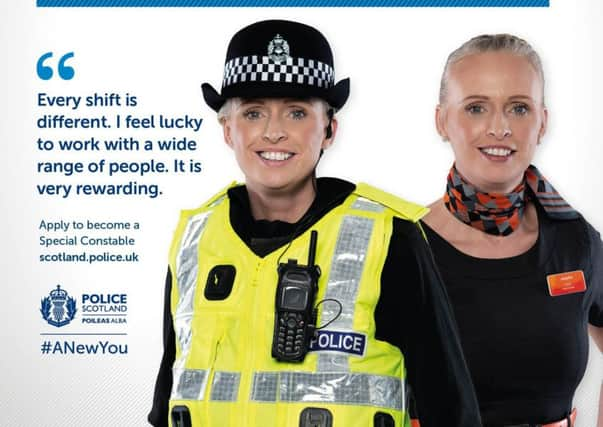Why Scotland may regret decline of police ‘Specials’ – Tom Wood


It is Robert Peel who is generally credited with establishing the guiding principles of modern policing in the UK.
His vision was for a civilian force, unarmed and community based, his ideal defined as being when “the public are the police and the police are the public”.
Advertisement
Hide AdAdvertisement
Hide AdSo it has remained and nowhere has that ideal been better met than in the Special Constabulary, one of the oldest forms of voluntary service. ‘Specials’ have been supporting the regular police service for over 100 years.
Established at the start of the First World War, they soon became an integral part of policing. In the early days, they were recruited as mounted, mechanised or foot patrol volunteers. In the former categories, you had to supply your own horse or car.
In the early days of poorly equipped police forces, Specials and their transport were welcome indeed. Given the reported state of Police Scotland’s current vehicle fleet, it’s food for thought!
So valuable did the Specials prove to be that after the war they were permanently established throughout Scotland.
With their own rank structure and administration – Edinburgh’s Specials even had their own pipe band – they have continued to support policing to the present day.
In the cities and large towns, they have always been a welcome addition, usually volunteering on the late shift, weekends or at sporting events.
But in the rural areas Specials were more than a useful add-on, in many remote parts they were the backbone, a visible presence.
The full extent of the contribution of Specials over the years can never be measured but being embedded in the community often gave them a unique insight.
Advertisement
Hide AdAdvertisement
Hide AdMany a youngster straying off the beaten track has been nudged, sometimes not so gently, back on course by a local Special.
Over time, as the regular force became more professional and equipment more sophisticated, the Specials’ role has changed and now it is seen by many as a recruiting conduit for the regular force.
It is a good idea, especially for younger folk, a dress rehearsal literally. Policing is not for everyone, best to find out sooner than later. And it works – many of the excellent young people joining Police Scotland today come via the Special Constabulary.
But the Specials are much more than an effective recruiting device. They remain the very essence of community involvement – it would be daft for Police Scotland not to make the most of such a valuable resource.
Not so long ago, Specials in remote communities were selectively recruited, head-hunted from villages and small towns – the butcher, baker and candlestick maker – to be a point of contact, eyes and ears where regular policing was sparse.
As police budgets are stretched and with community contact as important ever, it is perhaps time to revamp the Special Constabulary.
The goodwill is there – the butcher, baker and computer programmer await the call.
Old ideas are not always out of date.
Tom Wood is a writer a former Deputy Chief Constable
